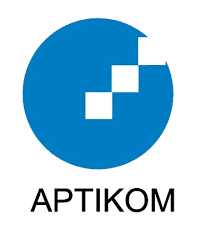Effect of Mobile Learning toward the Effectiveness of Mathematics Learning for Fourth-Grade Students in the Net Generation Era
DOI:
https://doi.org/10.18196/eist.v3i1.16858Keywords:
Net Generation, Mobile Learning, EffectivenesAbstract
The net generation is born simultaneously as new technologies are being developed, exposing them to those technologies from infancy. The constant coexistence with technology in their early lives imparts technological literacy to the fictional characters. Smartphones, for example, are an inseparable part of today’s children, and this generation is not only familiar with them but also proficient at utilizing them. Most children solely use their phones for media consumption. In particular, the mathematical abilities of this generation stand to benefit from the widespread adoption and proper use of smartphones. Students at all educational levels, from elementary school on up, now view mathematics as a formidable foe. There has to be a breakthrough that utilizes emerging technology, specifically mobile learning, to put an end to this terrifying phenomenon in learning mathematics. Therefore, this study was carried out to demonstrate the effectiveness of mobile learning in teaching mathematics to fourth-grade students (9-10 years old) in this net generation era. This research was conducted to provide educators and education administrators with a point of departure for creating new approaches that better reflect the traits of that generation. One of the hoped-for outcomes of this study is an improvement in individuals’ capabilities.
References
APJII. (2020, 6 25). APJII. Retrieved 12 6, 2020, from APJII: https://www.apjii.or.id/
OECD. (2018). OECD. Retrieved 3 9, 2020, from OECD: https://www.oecd.org/pisa/
Putradi, K. C. (2020). MENGUJI TINGKAT PEMAHAMAN SISWA KELAS VII DALAM MEMPELAJARI BAHASA INGGRIS MELALUI MOBILE LEARNING.
Triarso, A. (2010). Pengembangan Mobil Edukasi (m-edukasi). Retrieved Maret 16, 2020, from Rumah Belajar Untuk Semua: https://m.edukasi.kemdikbud.go.id/medukasi /?m1=artikel&kd=12
Jiang, Xin, Guanglong Li, and Wei Fu. "Government environmental governance, structural adjustment and air quality: A quasi-natural experiment based on the Three-year Action Plan to Win the Blue Sky Defense War." Journal of Environmental Management 277 (2021): 111470.
Dannels, Sharon Anderson. "Research design." The reviewer’s guide to quantitative methods in the social sciences. Routledge, 2018. 402-416.
Yanuarto, Wanda Nugroho, Joko Purwanto, and Anton Jaelani. "A NEW TREND IN INDONESIA: NEWEST CURRICULUM AND ITS’IMPACT ON MIDDLE SCHOOL LEVEL." JMM (Jurnal Masyarakat Mandiri) 6.3 (2022): 2365-2376.
Ssenyonga, Muyanja. "Imperatives for post COVID-19 recovery of Indonesia’s education, labor, and SME sectors." Cogent Economics & Finance 9.1 (2021): 1911439.
Siegle, D. (2015) T test, Educational Research Basics by Del Siegle. Available at: https://researchbasics.education.uconn.edu/t-test/ (Accessed: January 26, 2023).
Eviyanti, Cut Yuniza, et al. "Improving the students’ mathematical problem solving ability by applying problem based learning model in VII grade at SMPN 1 Banda Aceh Indonesia." International Journal of Novel Research in Education and Learning 4.2 (2017): 138-144.



